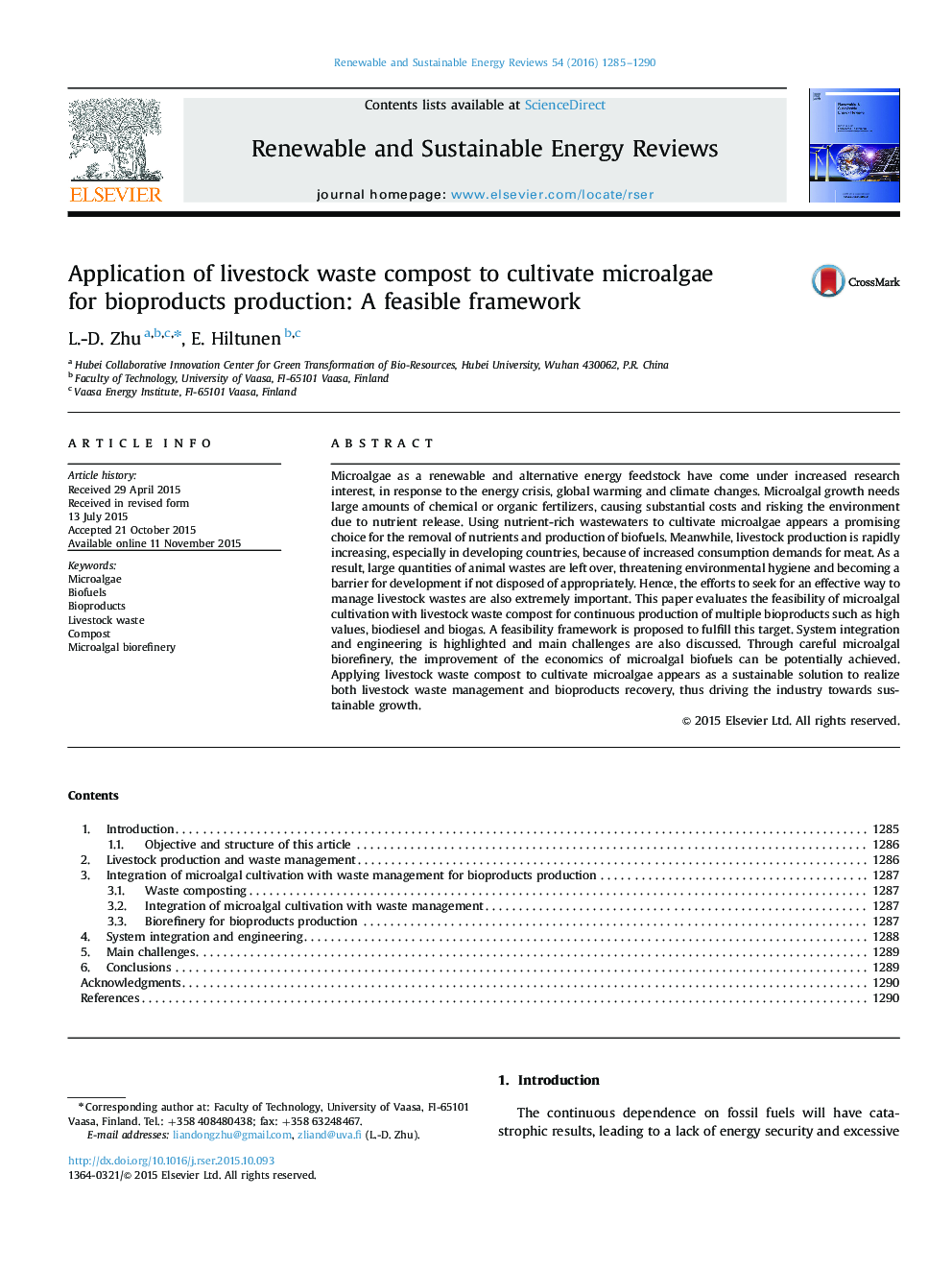| Article ID | Journal | Published Year | Pages | File Type |
|---|---|---|---|---|
| 1749915 | Renewable and Sustainable Energy Reviews | 2016 | 6 Pages |
Microalgae as a renewable and alternative energy feedstock have come under increased research interest, in response to the energy crisis, global warming and climate changes. Microalgal growth needs large amounts of chemical or organic fertilizers, causing substantial costs and risking the environment due to nutrient release. Using nutrient-rich wastewaters to cultivate microalgae appears a promising choice for the removal of nutrients and production of biofuels. Meanwhile, livestock production is rapidly increasing, especially in developing countries, because of increased consumption demands for meat. As a result, large quantities of animal wastes are left over, threatening environmental hygiene and becoming a barrier for development if not disposed of appropriately. Hence, the efforts to seek for an effective way to manage livestock wastes are also extremely important. This paper evaluates the feasibility of microalgal cultivation with livestock waste compost for continuous production of multiple bioproducts such as high values, biodiesel and biogas. A feasibility framework is proposed to fulfill this target. System integration and engineering is highlighted and main challenges are also discussed. Through careful microalgal biorefinery, the improvement of the economics of microalgal biofuels can be potentially achieved. Applying livestock waste compost to cultivate microalgae appears as a sustainable solution to realize both livestock waste management and bioproducts recovery, thus driving the industry towards sustainable growth.
